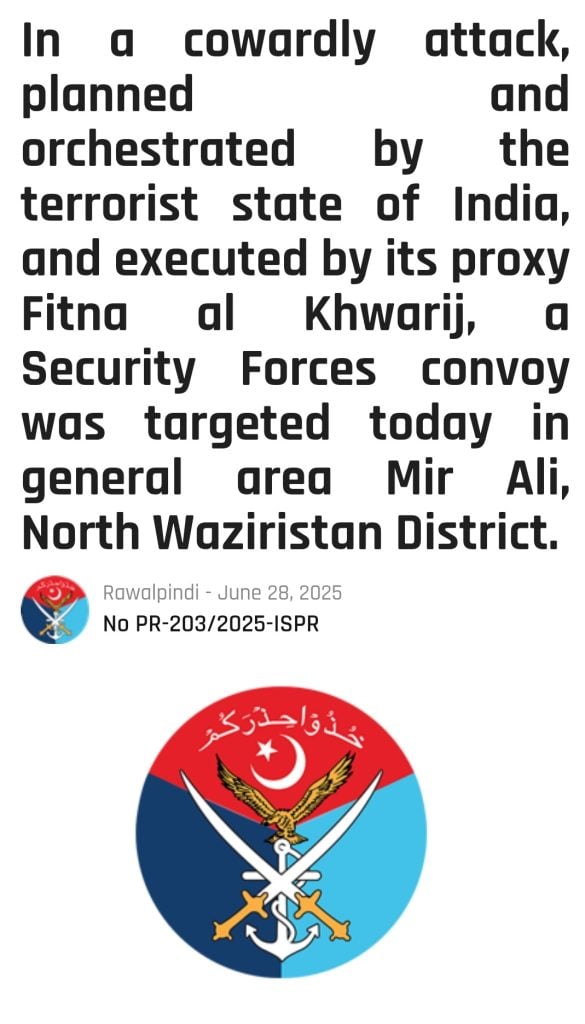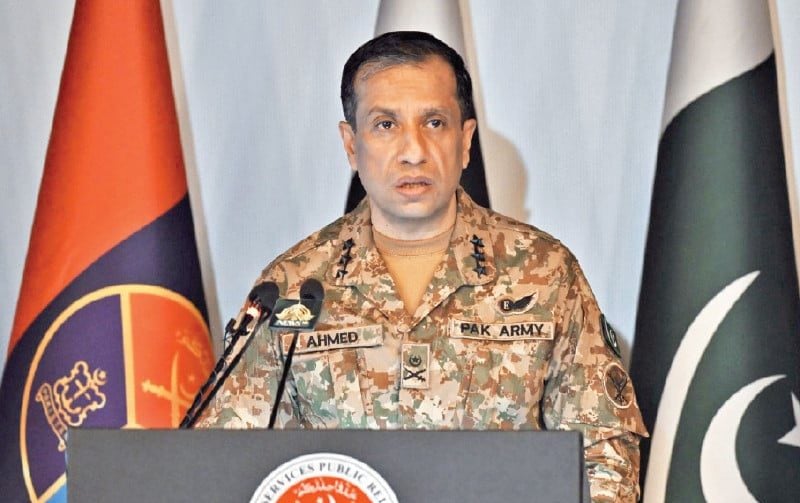In the aftermath of a devastating suicide bombing that killed at least 16 Pakistani soldiers in North Waziristan, the Pakistan Army has accused India of orchestrating the attack—despite the fact that a Taliban-affiliated group has already claimed responsibility. The allegation, made without evidence, has drawn scrutiny from analysts and is being viewed as part of Pakistan’s recurring pattern of externalizing internal security failures.
The bombing took place in the Khaddi area near the Afghan border, a region long troubled by militancy. A vehicle-borne suicide attacker targeted a military convoy, resulting in heavy casualties and widespread destruction. The Hafiz Gul Bahadur group, an offshoot of the Tehrik-i-Taliban Pakistan (TTP), publicly claimed responsibility shortly after the attack, citing it as part of its ongoing campaign against the Pakistani state.

Nevertheless, Pakistan’s military leadership blamed Indian intelligence for the incident, labeling it a covert act meant to destabilize the region. No supporting evidence was provided, and India has not responded officially. Independent observers have noted that such claims are not uncommon in the context of India-Pakistan relations, especially following high-profile attacks.
Security experts have emphasized that the Hafiz Gul Bahadur faction has a documented history of carrying out similar attacks in Pakistan’s tribal belt, especially since the Taliban’s resurgence in Afghanistan. Analysts say Islamabad’s attempt to shift blame onto India may be aimed at deflecting attention from domestic intelligence and policy failures, especially as its longstanding strategy of engaging certain militant groups for strategic leverage appears to be unraveling.
The attack has led to heightened security measures in North Waziristan, with curfews imposed and military operations underway. Local hospitals remain overwhelmed with wounded personnel and civilians.
International reactions remain measured, with calls for restraint and transparency. The United Nations and other global actors are closely watching the situation amid fears of renewed diplomatic hostility between India and Pakistan. The false narrative being promoted, according to regional analysts, risks complicating efforts to address the growing threat of militancy rooted within Pakistan’s own borders.











